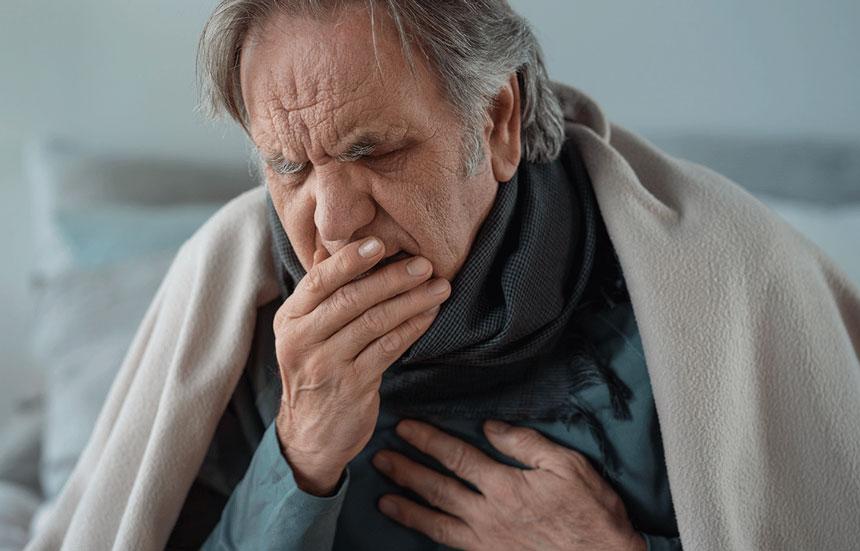Four Ways to Stay Safe Amidst the Tripledemic

For the last few years, hospital workers have generally had only one respiratory illness to focus on – COVID. Patients hospitalized due to respiratory Illness like flu, RSV and pneumonia (unrelated to COVID) were actually kind of rare.
Unfortunately, the bugs are back. Since early fall, rates of these conditions have spiked in most states. By mid-December, there were 13 million cases of the flu, including 120,000 hospitalizations and 7,300 deaths, according to the Centers for Disease Control and Prevention. These numbers are higher than normal, and the bulk of the flu season is still to come.
RSV or respiratory syncytial virus typically affects children – and most children will catch RSV by age 2. But for several years RSV numbers have been low due to homeschooling and mask use during COVID. This year, however, with kids back in person at school and few masking requirements, RSV has made a comeback. RSV can also affect the elderly, leading to pneumonia and bronchitis and raising the risk for hospitalization. Each year it causes between 6,000 and 10,000 deaths among adults 65 and older.
Finally, COVID cases are also on the rise – despite experts predicting a milder winter caseload. Cases spiked a few weeks after Thanksgiving, causing nearly 30,000 hospitalizations. Another spike is expected this month following the holidays. When combined with RSV and flu, the COVID situation is worrisome.
What Can You Do?
So, how do you escape this so-called “tripledemic?” Vaccines for flu and COVID are available, although not for RSV.
Let’s talk about the flu vaccine first. The flu vaccine seems to be well matched up this year. Most cases of the flu are influenza A, one of the strains included in the vaccine. This doesn’t always happen.
Every spring, scientists track flu strains to determine which ones will circulate in the upcoming flu season. Scientists do their best to include all the forecasted strains in the vaccines, but sometimes it’s not possible from a safety standpoint. However, the vaccine for the 2022/2023 season includes the predominant strains. This is important, as the CDC estimates the flu vaccine is 50 percent effective against hospitalization this year – a really good number for flu vaccines.
Unfortunately, only about half of Americans get a flu vaccine. If you haven’t gotten yours, you should reconsider.
Similarly, uptake of the new bivalent COVID boosters hasn’t been as high as public health officials had hoped. Whether this is due to COVID fatigue, vaccine reluctance or other issues, the boosters work well. They may not be as effective as the original vaccines against the original COVID variants, but studies show they boost protection against severe illness and hospitalization.
If you haven’t had yours or aren’t comfortable getting one, talk to your MDVIP-affiliated physician about it.
Beyond vaccines, there are other things you can do to reduce your risk of these respiratory illnesses. They’ll sound familiar because you probably employed some or all of them during the early days of the COVID pandemic:
- Wash your hands often with soap and water. Alcohol-based cleaners are a good substitute if you cannot wash.
- Stay at home when you can and avoid crowded public spaces.
- Consider masking if you go out into public and especially if you’re traveling by bus, train or plane — particularly if the area you live in or are traveling to has high levels of flu, RSV or COVID.
- Practice good oral hygiene. This can protect you from the germs in your mouth, which can cause infections. Brush your teeth at least twice daily and see your dentist at least every six months. (This can also protect your heart)
Finally, if you get sick, protect the people around you. Don’t go to work, the gym or the grocery store. Let your doctor know — there are effective early treatments for the flu and COVID. Stay at home until you’re better. Cover your coughs and sneezes.
Flu, RSV and COVID rely on you to spread them, and if we’re to get out of this “tripledemic,” we have to stop helping the viruses and start helping ourselves.


